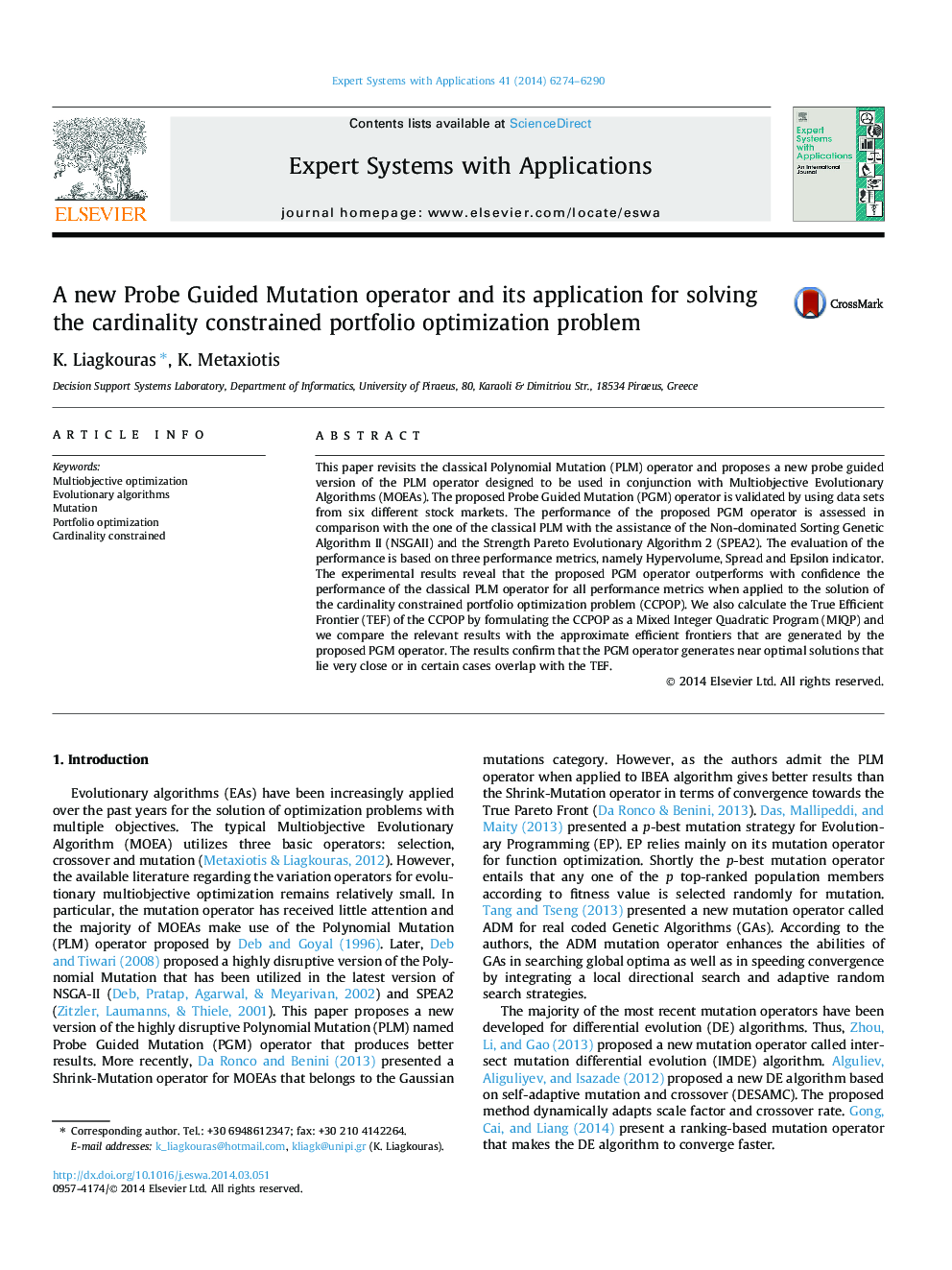| Article ID | Journal | Published Year | Pages | File Type |
|---|---|---|---|---|
| 383636 | Expert Systems with Applications | 2014 | 17 Pages |
•A Probe Guided Mutation (PGM) proposed for efficient exploration of the search space.•We use the PGM for solving the cardinality constrained portfolio optimization problem.•The PGM is assessed through a number of indicators: Hypervolume, Spread and Epsilon.•The PGM generates better results with confidence for all test problems examined.
This paper revisits the classical Polynomial Mutation (PLM) operator and proposes a new probe guided version of the PLM operator designed to be used in conjunction with Multiobjective Evolutionary Algorithms (MOEAs). The proposed Probe Guided Mutation (PGM) operator is validated by using data sets from six different stock markets. The performance of the proposed PGM operator is assessed in comparison with the one of the classical PLM with the assistance of the Non-dominated Sorting Genetic Algorithm II (NSGAII) and the Strength Pareto Evolutionary Algorithm 2 (SPEA2). The evaluation of the performance is based on three performance metrics, namely Hypervolume, Spread and Epsilon indicator. The experimental results reveal that the proposed PGM operator outperforms with confidence the performance of the classical PLM operator for all performance metrics when applied to the solution of the cardinality constrained portfolio optimization problem (CCPOP). We also calculate the True Efficient Frontier (TEF) of the CCPOP by formulating the CCPOP as a Mixed Integer Quadratic Program (MIQP) and we compare the relevant results with the approximate efficient frontiers that are generated by the proposed PGM operator. The results confirm that the PGM operator generates near optimal solutions that lie very close or in certain cases overlap with the TEF.
